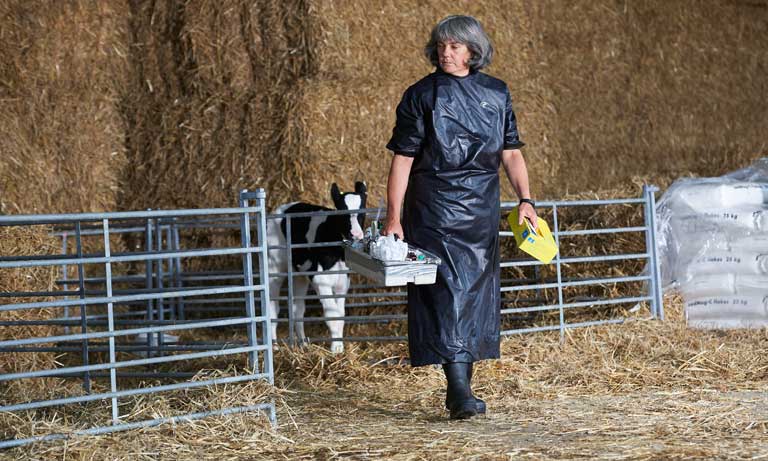
The UK's stricter post-Brexit rules on vet recruitment has been labelled 'catastrophic' by the head of the country's largest veterinary services provider.
Rules implemented by the Royal College of Veterinary Surgeons (RCVS) means overseas vets must display the same level of English required for students to enter Oxford or Cambridge University – standards EU vets were previously exempt from.
However, following a nationwide shortage of veterinarians, the RCVS recently agreed to relax the rules, leading to a half-point reduction in one area of the English test.
But UK veterinary services provider Eville & Jones claims the change is "not large enough to make an impact on the industry."
According to figures, over 95 percent of official veterinarians (OV) working in England and Wales come from the European Union.
OVs enable international trade, ensure meat is safe to eat, safeguard animal welfare, and keep restaurants and supermarkets stocked with high quality produce.
However, the RCVS, which has awarded accreditation to a handful of universities, produces just 900 qualified vets each year, despite job role openings of around 2,000.
Eville & Jones chief executive Charles Hartwell said that, because of this, the UK veterinary profession was now in 'crisis'.
"We need more vets to come through the education system, which takes five years, and an easier process for EU vets to join the UK workforce – of which there has been a 70% fall this year," he warned.
Post-Brexit export regulations, a spike in pet ownership during lockdown and the pandemic has lead to workforce shortages throughout the entire veterinary sector, including those within public health and animal welfare.
Mr Hartwell said this strain on the sector was 'catastrophic' as it would result in 'challenges with trading, supply of animal products and completion of food chains'.
He said: “The challenge of meeting new requirements as well as a reduction in qualified vets available in the UK, cannot be underestimated.
"As a country we need to look at our capacity to produce qualified vets and how we normalise and promote the benefits of a career in public health.
"There’s not an overnight fix but maintaining and prioritising public safety and animal welfare is vital.”
